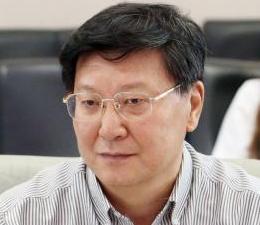Strategic opportunities are rare resources. The 18th National Congress of the Communist Party of China stated “China remains in an important period of strategic opportunities for its development.” Compared with 30 ago, however, the connotations of strategic opportunities have undergone a fundamental change. China must now have a deeper understanding about some important changes to the global economic pattern and international economic relations, and seize the strategic opportunities with a new line of thought.
Some new changes will also alter the important strategic opportunities in the coming ten years.
Firstly, China is gravitating to the center of the international economic system. Thirty years ago, China was still a low-income country. In 1980, its GDP accounted for merely 1.9% of the world’s total, ranking seventh in the world, but China’s current GDP has increased to account for 10.5% of the global total, becoming the second-largest economy in the world. From the perspective of global development, the rise of emerging economies, the eastward shifting of the center of global economic growth, and the lasting stagnation of the Western developed countries, it is possible for China to maintain and enjoy its strategic opportunities. When some western developed countries are still suffering from their sovereign debt crisis and the prospect for their economic recovery is not encouraging, China is still the most important growth engine for the global economy, in spite of the fact that it also faces some internal structural problems and a slowdown in economic growth.
Secondly, China is in the transition from seizing and using the strategic opportunities to creating such opportunities. In the past 30 years China, with its reform and opening-up policies, benefited the most from economic globalization in the late years of and after the end of the Cold War, by incorporating into and adapting to the global economic system. China is now the second-largest economy in the world and is no longer an exogenous variable, which had to passively adapt itself to the international economic environment, but rather an important endogenous variable that bears an influence on the global economy. This means that China has the qualifications to create strategic opportunities, and should be more active in doing so.
Thirdly, developed nations have changed their position from paying attention to “China’s rise” to a policy of “containing China.” Now that the time is different from past strategic opportunities, China will have to face up to more complicated challenges and risks in the coming ten years when China’s status improves remarkably and its role changes from a “follower” to a “ front-runner”. The developed countries tend to resort to measures such as trade protectionism and technology control to contain and check China, and some developing countries will also join to exert pressure on China. In particular, when the world economy gets on the road to recovery and new growth, the United States, the European Union and some developing countries who share similar foreign trade structure with China, will definitely resort to various measures to vie with China for markets and resources, inevitably resulting in the rise of more economic and trade conflicts.
Amid these domestic and international changes, China must work hard to avoid any weakening of its development, seize new opportunities and create new advantages.
First, China needs to create new advantages from its enormous market. The report of the 18th Party Congress proclaimed that the income of Chinese residents will double by 2020, the country’s purchasing power will have reached 64 trillion yuan. The huge domestic demand will become a new driving force for maintaining sustainable economic growth in China and the world as a whole. Ongoing urbanization will unleash a huge domestic market, and will promote and lead to the upgrading of China’s consumption structure, and ultimately promote industrial upgrading.
Second, China needs to cultivate new advantages in innovation. Multinational corporations (MNCs) in China have developed to a new stage. In the early years after they entered China, they considered China as the center of their market, and in the second stage they considered China as a research and development center. China, with adequate technology, market and human capital, is now one of the MNCs strategic centers and decision-making centers, and a focus of their industrial chains. These changes would mean unprecedented opportunities for China to create new advantages as a hub of global technology transfers and an “innovation magnet.”
Last, China needs to create new advantages from globalization by making use of global resources. Since the onset of the global financial crisis in 2008, there has been a growing tendency towards “anti-globalization”. China must learn and know how to deal with globalization, resort to the “going global” strategy to utilize global resources, and speed up its access to the global value chain through the means of international strategic alliances. As a “ front-runner,” China must play a role in and make the most of the globalization.
The world will become more open. For developed countries such as the United States and indeed the whole world, China’s strategic opportunities will also be theirs. On the one hand, the growing Chinese market will translate into growing trade. In 2010, China’s import value ranked the second in the world, and the country’s trade surplus has shrunk for three consecutive years. Estimates show that the growth rate of China’s imports will be as high as 27% from 2011 to 2015, about five percentage points higher than export growth. In the coming five years, China’s commodities import will exceed $10 trillion, and this will generate more investment opportunities for many countries in the world. On the other hand, China is pursuing innovation-driven development, seeking to make better use of global technology and innovation resources, and carrying out win-win technology cooperation with other countries. In short, there will be great potential for China to open up its economy for the world.
Zhang Monan is Associate Research Fellow at the State Information Center.




